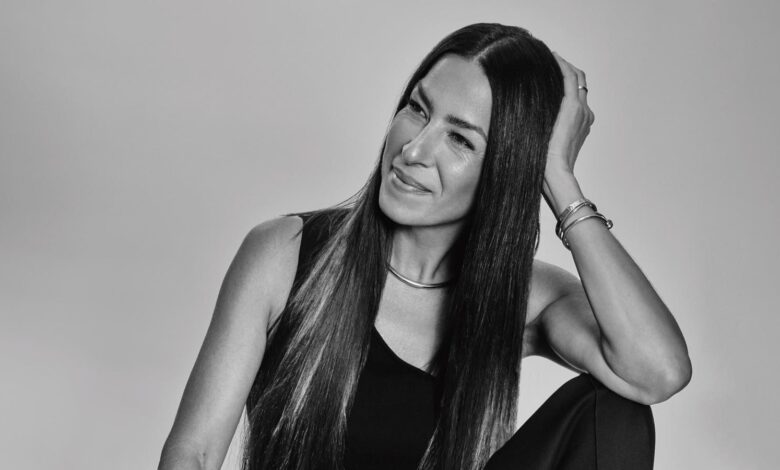Rebecca Minkoff Celebrates 20 Years With Collection Of Stadium Bags

📝 usncan Note: Rebecca Minkoff Celebrates 20 Years With Collection Of Stadium Bags
Disclaimer: This content has been prepared based on currently trending topics to increase your awareness.
Rebecca Minkoff, Photo Credit: Ruben Chamorro
Photo Credit: Ruben Chamorro
Twenty years in fashion is no small feat. For Rebecca Minkoff, it’s been two decades of momentum: from the cult-favorite “Morning After Bag” that became a millennial “it” accessory in 2005 to her latest milestone: a bold debut into the sports arena with an exclusive Amazon Fashion collection of stadium bags.
The throughline that has kept her in the game? An instinct for reinvention and the ability to tell stories that resonate. As she puts it: “It’s never-ending reinventing.”
Minkoff’s rise in the mid-2000s is the stuff of business legend and showcases her scrappy founder mindset. When an actress asked her if she designed handbags, she said yes, even though she didn’t (she was strictly designing apparel at the time). The sample she produced eventually became the “Morning After Bag.” Then came the tipping point: in 2005, Daily Candy ran a piece titled “The Catwalk of Shame” that featured her design.
“That one article really propelled the whole thing,” she recalls. “Before that, I had a couple of orders, but nothing crazy. Then suddenly there was wild momentum.”
Fast forward to 2025, and Minkoff is celebrating her 20th anniversary in the fashion industry, with a bold move into an unexpected category: sports.
Earlier this week, she hosted a New York Fashion Week experience in collaboration with Amazon Fashion, Echo Frames and Pro Standard, bringing together creators, tastemakers and media at the WNBA Liberty Game at Barclays Center. Guests were given a first look at her limited-edition stadium-approved collection, designed for today’s women who move seamlessly between stadiums, concerts, sidelines, and city streets.
The sports capsule wasn’t born out of a corporate brainstorm: it started on the sidelines of her son’s basketball games.
Rebecca Minkoff and Kaitlin Reagan attend NYFW Event with Amazon Fashion, Echo Frames, and Pro Standard at the WNBA Liberty Game in Brooklyn, NY, Photo Credit: Kriti Bisaria
Photo Credit: Kriti Bisaria
“My son loves basketball. His coach is a woman. She was wearing my basketball bag nonstop, and that was something we had done a limited edition of two years ago,” Minkoff shares. And watching her obsess over this bag at every game made me go like, you know what? Women in sports? The time is now.”
Her instinct was right. From the surge of women’s sports viewership to brands like Skims partnering with the NBA, the category is on fire. Minkoff saw the opportunity not only to expand into a new arena but also to connect with a cultural movement larger than fashion.
This debut underscores her ability to evolve: first tech-infused retail mirrors in the early 2010s, then wearables, now stadium bags.
For Minkoff, relevance is an active practice.
“I think about Madonna a lot. She’s remained relevant because she constantly reinvents herself,” she says. “For us, it’s about asking: what’s the next story, what’s the next ‘they didn’t see that coming’?”
Sometimes it’s organic, sometimes strategic. The key is knowing that relevance isn’t permanent. It must be earned, over and over.
Minkoff’s influence extends beyond her brand. In 2018, she cofounded the Female Founder Collective (FFC) with Ali Wyatt to support, develop and elevate female founded and women-owned businesses.
FFC’s newest initiative, The Cabinette (along with Wyatt, a founding partner of The Cabinette), launched this summer and is designed for women whose businesses have scaled beyond the basics.
Born out of years of collective experience across boardrooms, startups, and investment rounds, The Cabinette was created to solve a persistent gap in the female founder journey: what happens after success starts, but just before true scale, liquidity, or legacy? “We built the net we all wished we had,” Minkoff shares. “It’s about serving women at every stage, not just in business, but in their personal planning too,” Minkoff says.
Minkoff is refreshingly candid about the pitfalls of the startup playbook.
“We’ve been brainwashed to think you have to raise money, go into debt, and grow big quickly. If I could go back, I’d prioritize profitability. Maybe we would have been smaller, but we would have been healthier. Growth through debt is painful, and most founders I know are struggling with it.”
It’s advice that resonates in an era when many consumer brands are recalibrating. Her message: slower, sustainable growth may not sound sexy, but it builds businesses that last.
(Fast growth through outside capital often comes with painful trade-offs, from financial strain to the pressure of delivering hyper-growth metrics.)
Minkoff also pushes back on the idea that success happens quickly.
“There’s no shortcut. Sure AI can take a few tasks off your plate, but it can’t replace grit, drive, and persistence. Overnight success is a myth. You have to push, and you have to keep showing up.”
Looking back, she admits she also fell into the trap of rushing.
“For 15 years, I barely allowed myself balance… But now I see that slowing down actually makes you more effective. If this is what you’re called to do, what’s the rush?”
Minkoff’s advice to founders is clear: stop chasing the sugar high of viral moments. Focus on the long game, because momentum compounds.
If there’s one phrase that defines Minkoff’s approach, it’s this: “No is just the beginning of yes.”
“You need many micro ‘yes’es along the way. And the nos? They matter too. Barriers and obstacles are what make the wins satisfying.”




